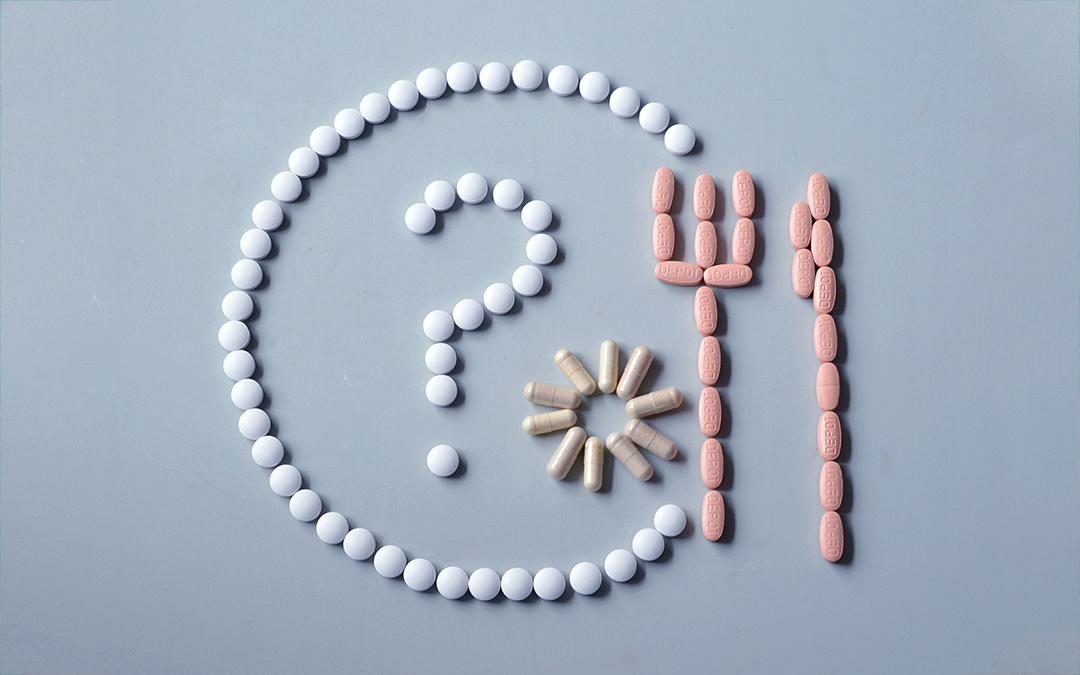The rise of social media has taken the marketing of weight loss supplements to a whole new level. So-called “influencers” ranging from movie stars to fitness gurus use their platforms to hawk products to their many followers, claiming they themselves use and benefit from these products.
The use of Instagram and other platforms to sell supplements has become so popular—and problematic—that there have been calls to ban celebrity ads for diet products from social media. Earlier this year, the director of England’s National Health Service (NHS) called for Instagram to disallow these types of celebrity endorsements, calling them “irresponsible and unsafe.
Of course, celebrities wouldn’t be so interested in selling these products if people weren’t so interested in buying them! Americans spend over 2 billion dollars a year on weight loss supplements every year.
With all the hype surrounding these products, consumers are left with one question: Do fat-burning supplements really work? While many of the products purported to promote weight loss are nothing more than clever marketing and false claims, there are some that are shown by science to work. Here are a few of them.
Caffeine
Ever notice how a lot of weight loss supplements include caffeine (or a natural source like guarana)? Perhaps that’s because, aside from its ability to boost energy in a way that could allow you to burn more calories, caffeine has also been shown to reduce abdominal fat,. In one Japanese study, 75 overweight men and women were given a product containing caffeine plus glucosyl hesperidin (G-hesperidin, a glycoside found mainly in citrus fruits) or a placebo. Participants were divided into five groups, with one group receiving placebo and the other four receiving 0, 25, 50, or 75 mg caffeine plus 500 mg G-hesperidin. After 12 weeks, the group who got the formulation with 75 mg of caffeine in it experienced a significant reduction in BMI, and both the 75 mg and 50 mg doses significantly reduced abdominal fat.
Before you start popping diet pills containing caffeine, make sure to take a look at the other ingredients. While caffeine is generally considered safe, many products contain other ingredients that may not be. And if you have high blood pressure or issues with tachycardia, avoid added caffeine.
Conjugated Linoleic Acid (CLA)
Found naturally in beef and dairy products, CLA has been shown to reduce body fat. Animal studies have been particularly promising, but some research on humans have also demonstrated results. In a double-blind, placebo-controlled trial looking at the effects of CLA supplementation, 180 overweight male and female volunteers were given one of two forms of CLA or a placebo every day for one year. At the end of the study period, subjects who took either form of CLA significantly lowered their body fat mass.
One of the perks of CLA is that it appears to be fairly safe and well-tolerated, and it’s unlikely to interact with any medications. However, some people do experience gastrointestinal distress while taking CLA.
Green Tea Extract
Green tea is the beverage of choice for many cultures around the world, and it has also been heavily studied for its health benefits. Among these, green tea may help promote fat burning and weight loss.
Green tea has a number of active constituents, but the two that are most often associated with weight loss are caffeine and catechins. I’ve already discussed the potential ability of caffeine to burn fat, but what are catechins? Part of a group of compounds called polyphenols, catechins possess potent antioxidant properties. Among the catechins found in green tea, epigallocatechin gallate (EGCG) seems to be a particularly powerful antioxidant.
Research indicates that catechins and caffeine together may increase fat oxidation. A systematic review of 15 randomized controlled trials found that green tea catechins combined with caffeine over an average of 12 weeks significantly reduced body weight and waist circumference in the studies’ participants.
Drinking green tea is perfectly safe and a good way to reap the health benefits of this beverage. While most of the green tea extracts on the market are also safe, some studies indicate a link between high doses of catechins and liver problems. As always, I suggest working with a professional who can guide you in the direction of a high-quality choice.
The Bottom Line
The bottom line on whether fat-burning supplements really work? If something seems too good to be true, it probably is. Stick to science-backed products, and check with an expert before starting a new supplement. And of course, don’t forget to focus on diet and exercise – the most tried and true methods to burn fat and get in shape.
To stay on the cutting edge of health information, sign up for my newsletter. You’ll get scientifically-validated tips and articles sent to your inbox, and to start you off we’ll send you a FREE copy of my “Top 10 Supplements for Men” guide.
Myles Spar, MD, MPH is board-certified in Internal Medicine and in Integrative Medicine. As a clinician, teacher and researcher on faculty of two major medical centers, he has led the charge for a more proactive, holistic and personalized approach to care that focuses on cutting edge technology and preventative care. Dr. Spar has traveled with the NBA, presented a TEDx Talk, appeared on Dr. Oz, and been featured in publications such as the Men’s Journal and the Los Angeles Times.


